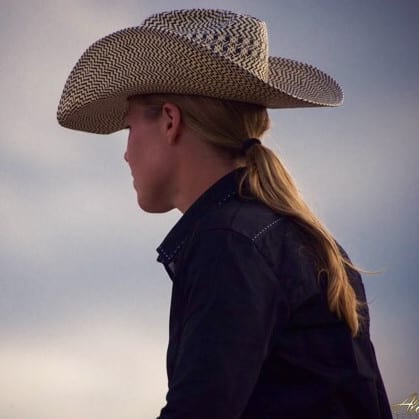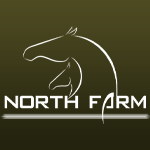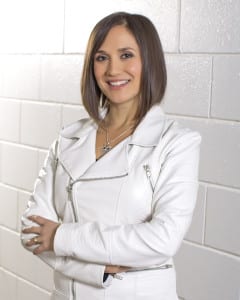“Are you ‘Happy’?”
My three year old son looks me in the eyes, with his sweet, little hands holding my cheeks. It takes my breath away and causes me to consider the things I am most grateful for, the things that are going well, as well as the goals in my heart that inspire me to work harder and smarter every day. It is a great time to reflect back on your horse showing in 2015.
So I ask you: “Are you happy with your show season?” If you are finding it hard to identify your successes and fun is not in your current show vocabulary, then something is amiss.
I attended the 2015 All-American Quarter Horse Congress and enjoyed the beautiful weather and the high-quality of performances. It is evident how much dedication and commitment it takes to show competitively at this level. In fact, to be competitive at even the local AQHA level, riders and families commit a lot of resources and make sacrifices in other areas of life. Considering the time, money, and passion for our horses, there is no doubt that everyone wants return on their investment.
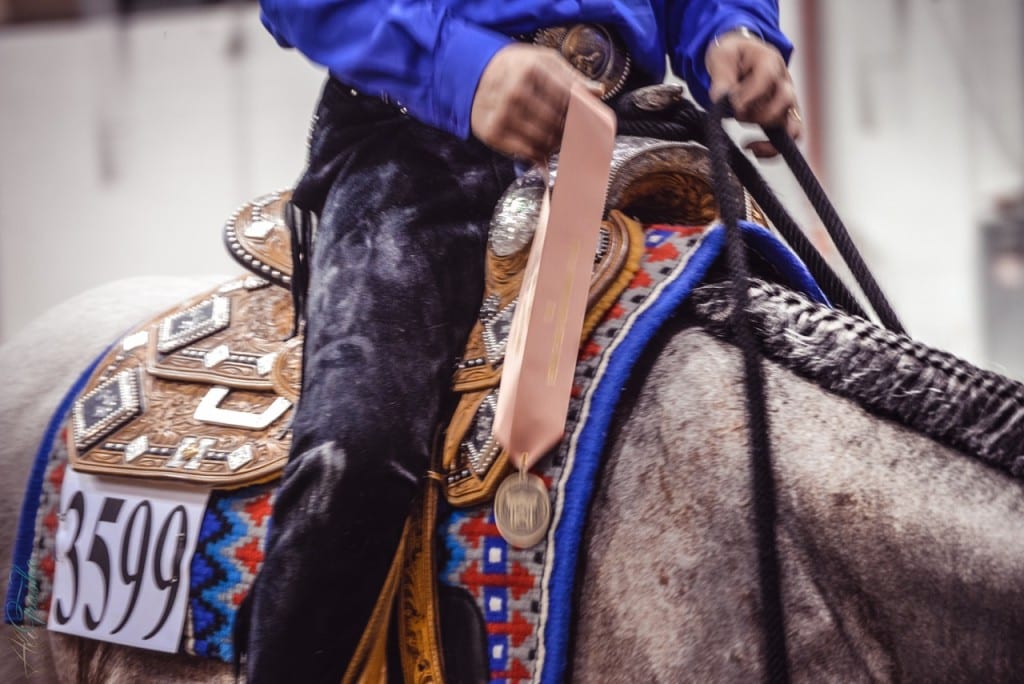 The reality is, in terms of results, there is one only first place ribbon, one reserve acknowledgment, the top ten recognition, and finalist acknowledgements. For some, making it to the finals is reward enough. For many, top ten is a success, considering the stiff level of competition.
The reality is, in terms of results, there is one only first place ribbon, one reserve acknowledgment, the top ten recognition, and finalist acknowledgements. For some, making it to the finals is reward enough. For many, top ten is a success, considering the stiff level of competition.
What about the rest of the pack, those who do not make their splits? You might be left with fewer feelings of success or satisfaction in your show experience. If this is you, I would encourage you to take some time to further reflect on a number of things.
First of all, feelings of satisfaction do not have to rest solely in placements. Taking the time to identify things that went well, as well as looking for the areas that you can to improve upon is a valuable mental process for anyone, in any performance endeavor. Asking for feedback from your coach/trainer and other knowledgeable supporters is one way to recognize strides you are making in your area of discipline.
Another way to mark improvements is to follow-up with AQHA to get your scores. This way you will get a measure of your results, and in many cases see where you scored high and low. Continuous improvement is an important motivational component of a positive mental game and healthy emotional experience.
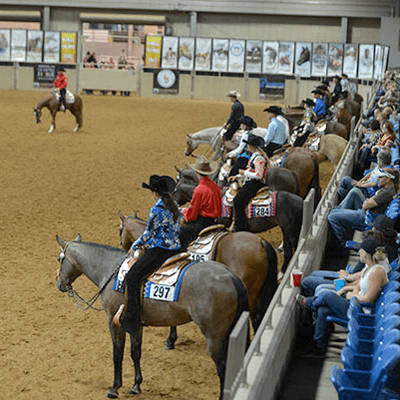 Besides getting your score and feedback, it can also be a time to reflect on other motivational components that influence the satisfaction and enjoyment you get from showing. Other rewards might include such as things as spending extended weekends and (weeks) with your horse; meeting people who are also passionate about horses and showing; and having fun and sharing laughs with your “crew,” all the people that are supporting you or part of the your preparation.
Besides getting your score and feedback, it can also be a time to reflect on other motivational components that influence the satisfaction and enjoyment you get from showing. Other rewards might include such as things as spending extended weekends and (weeks) with your horse; meeting people who are also passionate about horses and showing; and having fun and sharing laughs with your “crew,” all the people that are supporting you or part of the your preparation.
Staying connected to multiple reasons for showing, celebrating the little victories, and gaining perspective on the “lesser thans” will leave you feeling your “happiness bucket” is just a little fuller.
Another area to consider when reflecting on your level of satisfaction and enjoyment for showing falls within a term used in psychology: “locus of control.” This is refers to the extent to which individuals believe they can control events affecting them.

Click here to learn more
Learning to keep your energy and focus on the things that you can control is a very important motivational factor. In sports where you are judged—such gymnastics, figure skating and many forms equestrian competition—it is important to stay focused on your performance, what you can control about performance.
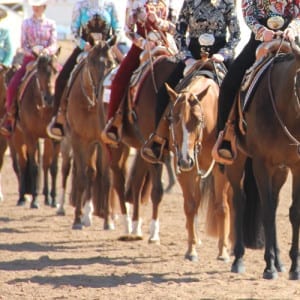 Reflecting on your thinking process in this regard is important for keeping your attitudes and motivation in an empowering frame of mind. Any perceptions that keep you too heavily focused on judges—or negative feelings, like thinking that judges are unduly paying favoritism to certain trainers or barns—is a negative road to stay on.
Reflecting on your thinking process in this regard is important for keeping your attitudes and motivation in an empowering frame of mind. Any perceptions that keep you too heavily focused on judges—or negative feelings, like thinking that judges are unduly paying favoritism to certain trainers or barns—is a negative road to stay on.
While it is important for officials of any judged sport to maintain commitment to both a) the perception and b) the policies and procedures that minimize unfair bias or favoritism, it is imperative for competitors to reflect on the variety and multitude of factors that lead to more successful outcomes and results.
Excellence in sport, and for many performance domains, is a result of an effective process. Whether top trainers are conscious or not to what’s contributing to their success, in the world of Olympic or professional sports, four main categories of development are almost always being reviewed. And it can become a framework to consider your season and what might be helping or hindering your success and satisfaction.
I encourage many of the athletes I work with to reflect on what is going well, what they are happy with, as well as the areas that need improvement or change. What’s unique in equine competitions is that all the principles apply not only to the rider but, of course, the horse too.
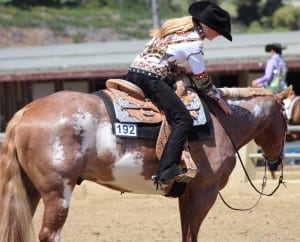 So, here’s a framework for considering your show season. Optimal Performance = Technical/ tactical abilities + Physical fitness + Effective group function + Mental fitness
So, here’s a framework for considering your show season. Optimal Performance = Technical/ tactical abilities + Physical fitness + Effective group function + Mental fitness
To clarify some of the terminology, the technical abilities reflect the skill and talent of the horse and rider for a particular discipline. Including the suitability of the horse’s conformation combined with the training principles to develop as a pattern horse, pleasure horse, halter horse and combination thereof. Tactical ability reflects both the horse and riders execution in the “coming together” of elements in a pattern or “game plan” in the pen for a pleasure class.
Physical fitness reflects both the physical strength and endurance requirements of a rider and horse for their disciplines of choice, as well as the overall health/well-being of the horse and rider at any particular show.
The effective group function includes the group dynamics influenced by the personalities, communication, standards of behavior and leadership abilities of the riders, trainers and all other group members. It also reflects the quality of communication and connection between horse and rider.
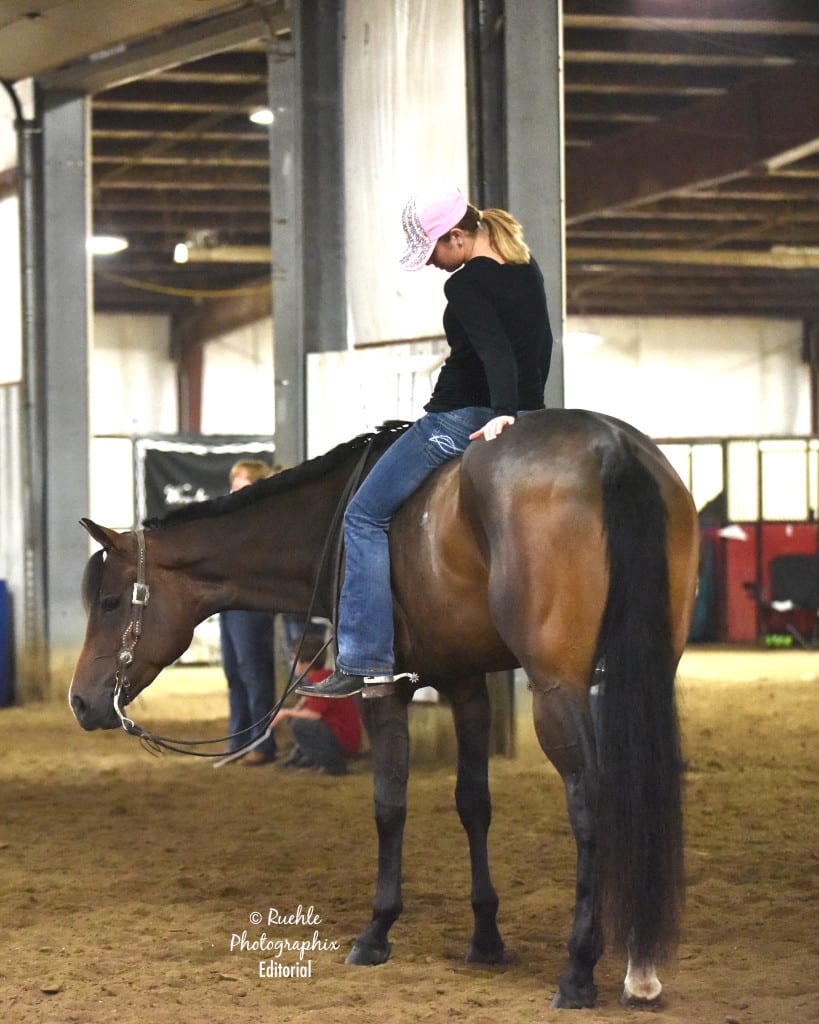 It is up to you what level of consideration you can give to each. And it is helpful to talk through these components with trusted experts. Your horse trainer or coach can help assess your horse. Most regions have access to physical fitness professions for assessment and personal development in this area. However, an area many people leave to chance, accept “what is,” or don’t know is: where to turn for help in the area of leadership, group function, and mental performance.
It is up to you what level of consideration you can give to each. And it is helpful to talk through these components with trusted experts. Your horse trainer or coach can help assess your horse. Most regions have access to physical fitness professions for assessment and personal development in this area. However, an area many people leave to chance, accept “what is,” or don’t know is: where to turn for help in the area of leadership, group function, and mental performance.
It is easy for people to focus on others personality and habits in the areas of group function and leadership. However, a great place to start is to consider one’s own skills and abilities in this area, then to recognize we can’t change or control other people’s attitudes and actions. That said, we can and do influence others in positive or negative (and usually not neutral) ways.
Mental performance is also an area misunderstood and not focused on for development. However, it is extremely important because your ability to manage energy and to focus effectively in the minute-to-fifteen minutes it takes to run a class you have been preparing for all season is part of the formula for your best performance.
Many people don’t think of mental skills and abilities like physical skills. However, sport psychology research has proven that just like you can train physical fitness for peak performance, with commitment, you can improve mental fitness for peak performance. When athletes and teams put hundreds of hours and money into physical and technical training, and under-perform in key moments, chances are they have an under-developed mental game.
I hope you have found this helpful in reflecting on your experience in the past show season and to find out more how you can assess your mental game for peak performance contact [email protected] or visit AheadintheGame.ca
 Click here to learn more
Click here to learn more
Tara Costello, M.A., Mental Performance Consultant, Member of Canadian Sport Psychology Association, Creator of Ahead Sport Mind Training app available in App Store and Google Play. She supports amateur and professional athletes in achieving regional, national and international success. She has worked with National and World Curling Champions, nationally ranked tennis athletes, NHL/ AHL hockey players, elite golfers & equestrians and many others from a variety of sports to achieve personal victories. Tara has been the Mental Trainer for Special Olympics Team Canada helping them succeed at the 2013 and 2015 World Games. Tara provides in-person and distance-based mental performance consulting to athletes throughout North America. She has experience competing in a variety of sports, including western performance classes.


